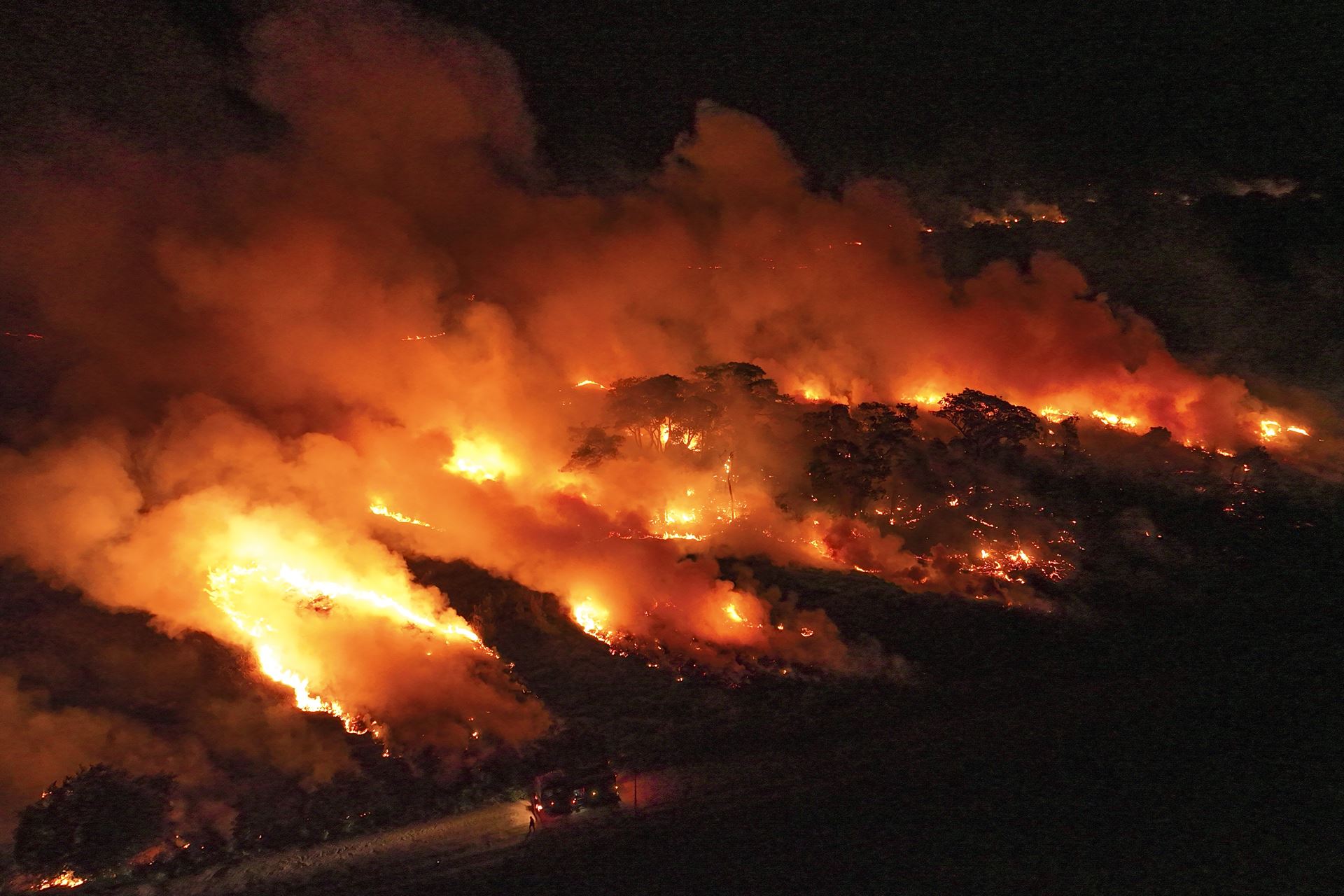
CORUMBA, Brazil - As Jose Cleiton and Brandao Amilton ride their horses into the vastness of the Pantanal grassy wetlands of Brazil, a wall of smoke towers from the horizon far into the sky above.
The worst of the dry season is still far off, but already these Brazilian wetlands are so dry that wildfires are surging.
ALSO READ: UN environment chief lauds nation's biodiversity role
The number of Pantanal fires so far this year has jumped tenfold from the same period last year according to Brazil's National Institute of Space Research (INPE).
The Pantanal wetlands, roughly 10 times the size of the Florida everglades, are home to jaguars, tapirs, caimans and giant anteaters. Weak rains since late last year have disrupted the usual seasonal flooding, leaving more of the region vulnerable to fires
"It's hard to breathe. It's hard for newborn children. The heat gets stronger and stronger," said Amilton, a local fishing guide. "The Pantanal is already hot and it gets hotter, drier, with smoke, the weather gets very bad."
READ MORE: Brazil fires threaten world's largest wetland
The men guide cattle across the flood plain, hoping for a better chance of survival. "The way the fire is coming, it could surround them and burn them to death," said Cleiton, a farmer.
The Pantanal wetlands, roughly 10 times the size of the Florida everglades, are home to jaguars, tapirs, caimans and giant anteaters. Weak rains since late last year have disrupted the usual seasonal flooding, leaving more of the region vulnerable to fires.
As the region approaches the riskiest season for wildfires, which usually peak in September, experts are warning that the blazes so far this year are worse than the start of a record 2020, when a third of the Pantanal burned.
More than 3,400 square km of the Pantanal have burned from Jan 1 to June 9, the highest level on record, according to the Federal University of Rio de Janeiro's satellite monitoring program, with data going back to 2012.
READ MORE: WWF warns of 'devastating' increase in global deforestation
The contrast with record flooding in Rio Grande do Sul, three states to the south, may be jarring, but scientists say they are part of the same phenomenon — an unusually strong El Nino pattern, worsened by climate change.
"Climate change has supercharged El Nino," said Michael Coe, a climate scientist at the Woodwell Climate Research Center. "Now we are in a different realm."



